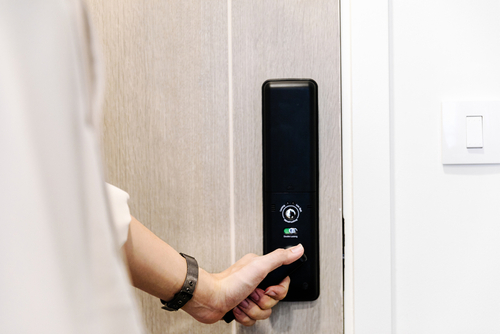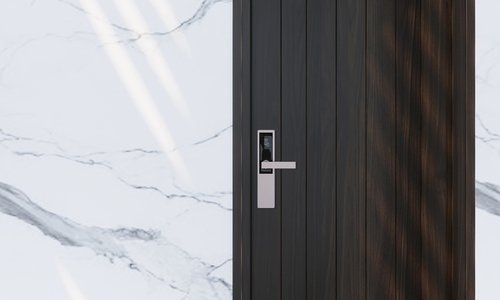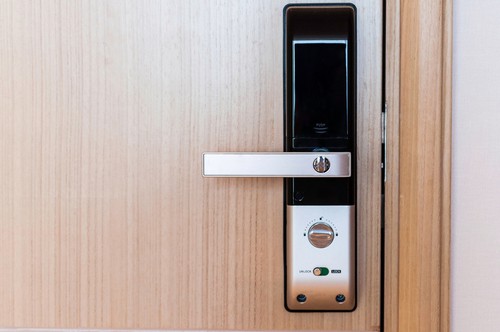
Installing Digital Locks on HDB Doors: A Comprehensive Guide
October 4, 2023
Fingerprint Locks for Shared Spaces: Managing Access and Privacy
December 6, 2023Fingerprint Locks vs Traditional Locks: A Comparison
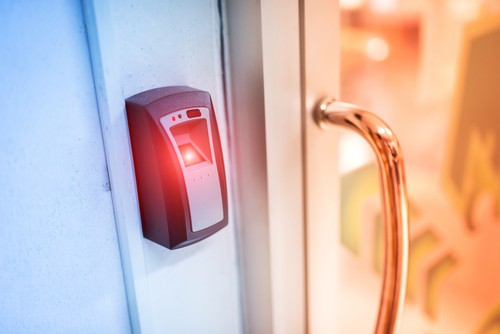
Fingerprint Locks vs Traditional Locks A Comparison
Fingerprint Locks vs Traditional Locks: A Comparison. In today’s ever-evolving world, the importance of security cannot be overstated.
Whether it’s safeguarding our homes or protecting our businesses, the need for reliable security measures is paramount.
This article delves into the realm of security solutions, focusing on comparing two distinct options: fingerprint locks and traditional locks.
Understanding Fingerprint Locks
How Fingerprint Locks Work
Fingerprint locks employ cutting-edge technology, known as fingerprint recognition, to grant access.
They operate on the principle of biometric authentication, where an individual’s unique fingerprint pattern serves as the key.
When a person approaches the lock, it scans their fingerprint and matches it against stored data. If the patterns match, access is granted.
This process is efficient and minimizes the risk of unauthorized entry.
Benefits of Using Fingerprint Locks
1. Convenience and Ease of Access
One of the standout advantages of fingerprint locks is their unparalleled convenience. No more fumbling for keys or remembering complex combinations.
Your fingerprint is always with you, providing swift and hassle-free access to your premises.
2. Enhanced Security Features
Fingerprint locks offer an elevated level of security. Unlike traditional locks that rely on keys, which can be easily lost or stolen, fingerprints are unique and cannot be replicated.
This uniqueness ensures that only authorized individuals gain entry, significantly reducing the risk of break-ins.
3. Elimination of Traditional Keys
Fingerprint locks eliminate the need for physical keys. This enhances security and reduces the chances of lockouts due to misplaced or forgotten keys.
Traditional Locks: The Basics
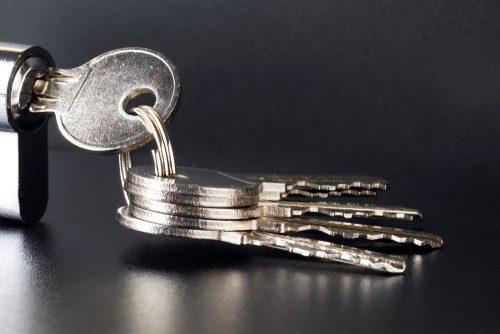
Traditional Lock Mechanisms and Their History
Traditional locks have a rich history dating back centuries. These locks have evolved, but the core mechanisms remain largely the same. They function by physically blocking access through the use of keys or combinations.
Types of Traditional Locks
1. Pin Tumbler Locks
Pin tumbler locks are perhaps the most common traditional locks. They consist of pins that must align perfectly for the lock to open. While effective, they can be vulnerable to lock-picking.
2. Deadbolt Locks
Deadbolt locks offer enhanced security compared to pin-tumbler locks. They feature a solid, single bolt that extends deep into the door frame, making them resistant to forced entry.
3. Mortise Locks
Mortise locks are often used in commercial settings. They are complex and durable, providing a high level of security.
Pros and Cons of Traditional Locks
Traditional locks have their merits, including affordability and reliability. However, they are not immune to vulnerabilities such as lock-picking and the risk of key duplication.
Security Features Comparison
Analyzing the Security Aspects of Fingerprint Locks
Biometric Authentication
The foundation of fingerprint locks lies in biometric authentication. This method ensures that only individuals with authorized fingerprints can access a secured area, making it exceedingly difficult for intruders to breach the lock.
False Acceptance and False Rejection Rates
Fingerprint locks boast impressively low false acceptance rates, meaning they rarely grant access to unauthorized users. Conversely, the false rejection rates are minimal, ensuring authorized users are not denied access.
Comparing the Security of Traditional Locks
Traditional locks, while reliable, are susceptible to traditional methods of bypassing, such as lock-picking or key duplication. This makes them less secure when compared to fingerprint locks.
Vulnerabilities and Common Methods of Bypassing

Fingerprint locks, although highly secure, are not entirely foolproof. Some advanced techniques, such as fingerprint replication or spoofing, can compromise their security. However, such methods are rare and require a significant level of expertise.
On the other hand, traditional locks face more common vulnerabilities, such as lock-picking and bumping, which are easier for experienced criminals to execute.
Which One Offers Better Protection?
In a direct comparison, fingerprint locks emerge as the superior choice in terms of security. Their biometric authentication and low false acceptance rates make them highly effective at preventing unauthorized access.
Installation and Maintenance
Installation Process of Fingerprint Locks
Installing a fingerprint lock typically involves mounting the lock on the door and registering authorized fingerprints. It’s a straightforward process that a professional locksmith can complete.
Maintenance Requirements for Fingerprint Locks
Fingerprint locks require minimal maintenance. Regular cleaning of the fingerprint scanner to remove smudges or dirt is usually sufficient to keep them in optimal working condition.
Installation and Maintenance of Traditional Locks
Traditional locks require professional installation to ensure they function correctly. Maintenance may involve occasional lubrication and key replacement, adding to their long-term cost.
Cost Comparison
When considering the cost of installation and maintenance over time, fingerprint locks may initially seem more expensive. However, their enhanced security and long-term reliability can offset these costs compared to traditional locks.
Fingerprint Locks vs Traditional Locks: A Comparison – Conclusion
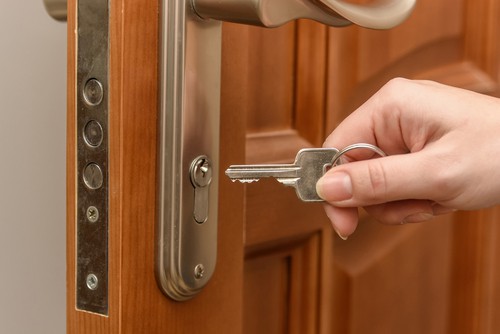
In conclusion, choosing between fingerprint and traditional locks ultimately depends on your security needs and priorities.
Fingerprint locks offer high security, convenience, and ease of use, making them ideal for residential and commercial applications.
While traditional locks have their merits, their susceptibility to common vulnerabilities leaves them trailing in terms of security.
As the world of security technology continues to evolve, fingerprint locks represent a glimpse into the future of home and business security.
With their unmatched combination of convenience and robust security, they are poised to redefine how we protect our most valuable assets. Choose wisely, and secure your peace of mind with the latest in security innovation.
Are you seeking professional and reliable digital lock installation services in Singapore? Contact us today!

